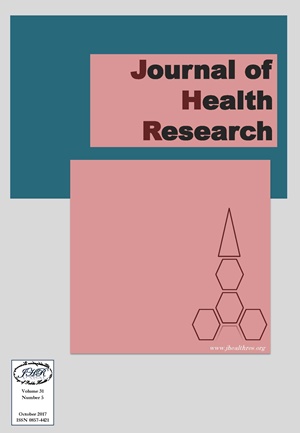Predicting Factors of Professional Behavior of Indonesian Nurses, West Java Province, Indonesia
Keywords:
Self-efficacy, Organizational support, Professional behavior, Personal factors, EmpowermentAbstract
Background: The understanding of how nurses perceive the concept of professionalism has always been fundamental in terms of creating appropriate policy. However, Indonesia managed to pass the updated Nursing Act in 2014 and has been struggling to create proper policy regarding nurses so far. It is apparent that the main problem is due to the lack of clarity in giving meaning towards the perception of professionalism. As a result, there is an immediate need to properly describe and analyze several factors that may be significantly related to nurse professionalism in general. This study aims to examine and identify the predicting factors of professional behavior of Indonesian nurses, in West Java, Indonesia.
Methods: A descriptive predictive study was conducted at three type A hospitals in West Java. A total of 160 participants were recruited for the study. The personal factor questionnaire, General Self-Efficacy scale (GSE), Survey of Perceived Organizational Support (SPOS), Psychological Empowerment Questionnaire, and Registered Nurses’ Association of Ontario (RNAO) professionalism questionnaire were used to collect the data. Descriptive statistics, Pearson’s r correlation, Chi-square test, and Stepwise multiple regression were used to analyze the data.
Results: Study results indicate that perceived organizational supports had a low relation with professional behavior in nursing (r = .210; p = .008). Both self-efficacy and psychological empowerment showed a moderate relation to professional behavior (r = .576; p = < .001; r = .558; p = <001, respectively). Furthermore, personal factors which consist of level of education (X² = 20.363) and years of experience (r = .499; p = <.001) also showed moderate relationships. The overall perception of professional behavior by Indonesian nurses had a good ranking score (M= 3.81-4.26) for each component of professional behaviors. The Stepwise multiple regression resulted in four variables being selected for the model: self-efficacy, psychological empowerment, years of experience and education explained 49.1 % of the variance of professional behavior, (R² = .478).
Conclusion: The conclusion for this study indicates that self-efficacy, psychological empowerment, years of experience and education together can statistically predict professional behavior of Indonesian nurses in West Java. Greater effort, however, is required to improve self-efficacy and psychological empowerment due to such average results. Notably, the weakest relationship variable found in this study was organizational support, which implies an immediate need to construct a policy to improve and maintain various forms of institutional support channels for nurses in West Java.





